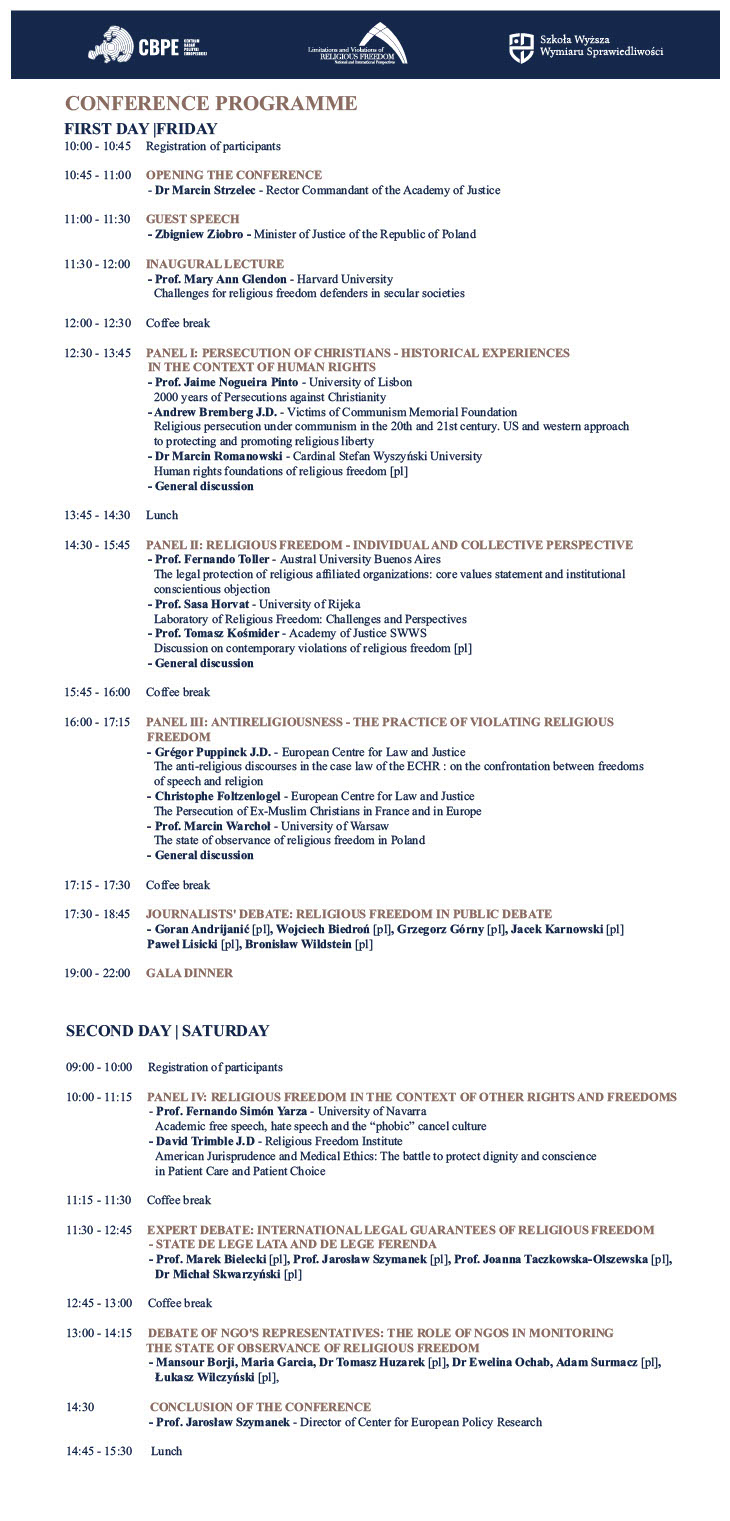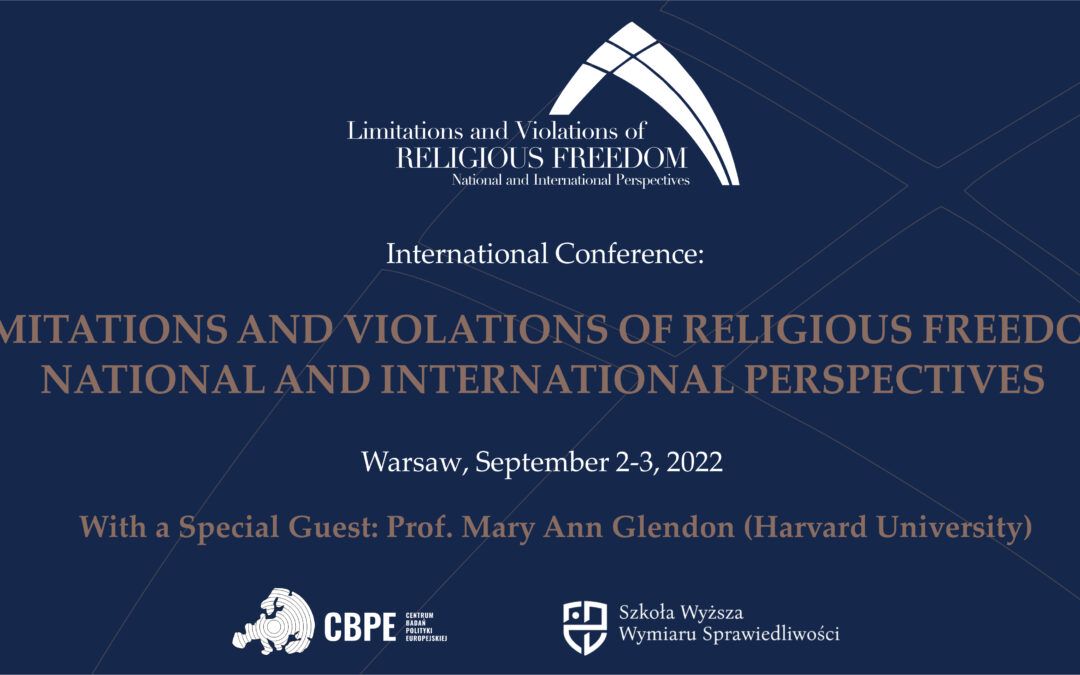INTERNATIONAL CONFERENCE
LIMITATIONS AND VIOLATIONS OF RELIGIOUS FREEDOM
NATIONAL AND INTERNATIONAL PERSPECTIVES
(Warsaw, September 2-3, 2022)
The Center for European Policy Research (CEPR) is a research unit that carries out interdisciplinary research on the processes of European integration and individual EU policies. The research and scientific work of the institute focuses on legal sciences, politics, economics and sociology, and – they focus on the protection of fundamental rights, addressing the issues of protecting the values of Western (European) civilization, based on the foundations of Christian ethics, Greek philosophy and Roman law .
Present times are marked by a kind of sensitivity to the issues of freedom – at the same time, there is a strong emphasis on the attitude to personal and social freedom of an individual. The fundamental issue is to determine the correct relationship between the functioning of the right to religious freedom in the context of the currently prevailing and created by European political elites – vision of the European Union.
In the social discourse, the question about the relationship of the right to religious freedom in the context of the violation of the right to privacy is repeated more and more often, which can be undoubtedly marked by the issue of the presence of religious symbols in social life. Nowadays, there are many abuses that depreciate religious freedom – understood not in the context of natural law, but in the erroneous perspective of an exclusively private preference – excluding the religious motivation of an individual, even beyond the limits of the so-called social life. In extreme cases, such an attitude can lead to stigma and ostracism in social life.
Considering the important achievements of Polish constitutional law – in particular in the context of human freedom and freedom of religion and culture, nota bene – enshrined in the Polish national heritage, and in the current legal framework – the Constitution of the Republic of Poland adopted on April 2, 1997 (which in Chapter II in a catalog of fundamental freedoms, rights and obligations of a person and a citizen – they were included right after the main system principles), it is the best determinant not only of the priority role in social and political life of the rights and obligations imposed on the citizen, but of how important it is to fulfill and above all protection of these freedoms for all – in the broad sense of the word.
The nature of religious freedom is described as complex because it subjectively balances – often divergent – the interests, views or needs of citizens. For this reason, proper definition of the legal framework in this area is a priority task.
Religious freedom is an integral part of human rights, in addition to national legislation, attention should be paid to the protection of this value in international jurisdiction. The most important act protecting religious freedom in this respect is the European Convention on Human Rights, adopted in 1950, which defines European standards in the field of religious freedom defined as freedom of conscience and religion. Article 9 of the Convention states: “Everyone has the right to freedom of thought, conscience and religion; this right includes the freedom to change one’s religion or belief and the freedom to manifest, individually or jointly with others, publicly or privately, one’s religion or beliefs through worship, teaching, practicing and ritualistic activities“. The indicated provision constitutes the conditions for restricting religious freedom, as it specifies that: “The freedom to manifest one’s religion or beliefs may be subject only to such restrictions that are provided for by law and necessary in a democratic society, due to the interests of public security, protection of public order, health and morals and the rights and freedoms of others“.
The conference will also be an opportunity to present the activities of the Center of the Academy of Jusice and the promotion of reports and analyzes on conference topics, including the following CEPR reports such as: “Evolution of the understanding of religious freedom in the light of the jurisprudence of the European Court of Human Rights” or: “Religious freedom practise in selected European countries“.
Scientific Committee:
dr Marcin Strzelec
prof. Tomasz Kośmider
prof. Jarosław Szymanek
prof. Marek Bielecki
prof. Paweł Sobczyk
prof. Alejandra Vanney
dr Mariusz Kuryłowicz

